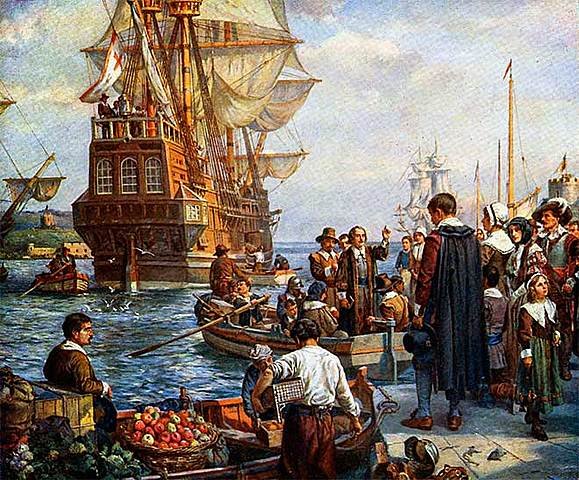Introduction
The Austrian School of Economics, originating in the late 19th century, has established itself as one of the most influential and distinctive currents in the field of economic thought. This school is characterized primarily by its focus on methodological individualism—that is, the study of economic phenomena based on individual actions and decisions. Through this lens, Austrian economists highlight the importance of subjective knowledge and the way each person uniquely uses information to make economic decisions.
One of the most notable aspects of the Austrian School lies in its constant critique of state intervention in the economy. According to its principles, government interference in markets tends to distort natural incentives and generate inefficiencies. This stance is especially relevant in the analysis of international trade, where commercial policies and state interventions can have significant implications for the efficiency of the global market.
In the context of international trade, the ideas of the Austrian School offer an alternative perspective that is, in many cases, more radical than that of other schools of thought. While currents such as mercantilism or Keynesianism tend to justify various degrees of government intervention in trade, the Austrian perspective advocates for broader liberalization and deregulation, asserting that individuals and businesses, when allowed to operate freely, are better able to promote general economic well-being.
Thus, this introduction leads us to a deeper exploration of how Austrian principles apply to international trade. By understanding the foundations of this school of thought, we can better appreciate the marked differences in its approach to global commerce and the implications it has for contemporary economic policy.
Brief History of the Austrian School
The Austrian School of Economics began with the work of Carl Menger in the late 19th century. Founded in 1871 with the publication of his book Principles of Economics, Menger aimed to develop an approach based on the theory of subjective value, in opposition to the objectivist theories of the German Historical School. His work laid the foundation for a new way of understanding economic phenomena, emphasizing individuality and the role of time in economic decisions.
Eugen von Böhm-Bawerk, a contemporary and colleague of Menger, became one of the fundamental figures of the Austrian School. Böhm-Bawerk contributed significantly to theories of capital and interest, providing a deep analysis of long-term economic processes. By the end of the Austro-Hungarian imperial period, the Austrian School continued evolving with prominent figures like Ludwig von Mises.
Ludwig von Mises, one of the leading exponents of this tradition, made major contributions through his work Human Action. Mises expanded the theories of his predecessors, covering areas such as economic calculation in socialist societies and detailed analysis of praxeology—the logic of human action. His legacy was a cornerstone for future developments of the Austrian School.
Friedrich Hayek, another influential critic of government intervention, continued to develop Austrian theories with his emphasis on dispersed knowledge and the price mechanism within market economies. Along with Murray Rothbard, who advocated a libertarian and free-market approach, these scholars extended the applications of the Austrian School—including its principles and theories in areas such as international trade—cementing an integral vision that remains relevant in contemporary economic analysis.
Major Contributions to International Trade
The Austrian School of Economics has made significant contributions to the understanding of international trade, particularly through the theory of subjective value. Karl Menger, one of the school’s founders, argued that the value of goods is not determined objectively by production costs but subjectively by the utility individuals perceive in those goods. This approach emphasizes the importance of individual perceptions, which are fundamental to voluntary exchange in international trade.
Voluntary exchange, from the Austrian perspective, is crucial to international trade. Each transaction is based on the premise that both parties perceive a subjective benefit. This simply means that trade is a positive-sum game, where all participants can gain according to their individual perceptions of value.
Ludwig von Mises, another prominent Austrian economist, expanded on these ideas with his theory of human action (praxeology). According to Mises, all economic actions are driven by the desire to improve individual well-being. This pursuit is manifested in entrepreneurship, which is an essential engine of international trade. Entrepreneurs identify opportunities for arbitrage and profit in global markets, thus facilitating the flow of goods and services.
In addition, the Austrian critique of protectionism is a vital aspect of its perspective on international trade. From this viewpoint, trade barriers such as tariffs and quotas divert resources from their most efficient and consumer-desired uses, ultimately harming overall welfare. Austrians advocate for trade free from artificial obstacles, allowing the global market to adjust naturally to supply and demand.
Finally, the importance of sound money is highlighted within the Austrian approach. A stable and strong currency is essential for reducing uncertainty in international transactions, thereby encouraging smoother and more predictable trade. Monetary fluctuations and inflation can distort relative prices and discourage trade—an outcome Austrian economists seek to prevent through conservative monetary policies.
Value Theory and Trade
The subjective theory of value, developed by Carl Menger, is a foundational pillar of the Austrian School of Economics. This theory holds that the value of a good is not intrinsic but derives from individual perception. In the context of international trade, this perspective becomes especially relevant in understanding how differing subjective valuations drive exchanges between countries.
In international trade, voluntary exchange serves as an essential mechanism that enables nations to collaborate in mutually beneficial ways. The subjective theory of value emphasizes that each party in a trade perceives greater value in the good they receive than in the one they give up. This phenomenon is central to understanding why countries trade and how individual value perceptions drive such exchanges.
For example, a country may specialize in producing goods or services in which it has a comparative advantage—that is, those it can produce at a relatively lower cost. Other countries, with different specializations and value perceptions, will be willing to trade their products for those goods. This trade flow not only optimizes the use of global resources but also reflects the aggregate of individual decisions based on personal valuations.
Free and voluntary interaction is therefore an essential engine of international trade according to the Austrian view. By valuing individual decisions, the theory acknowledges the importance of diversity in value perceptions and how these differences facilitate economic exchange. From this perspective, international trade is not merely a process of transferring goods and services but a manifestation of individual and national preferences, needs, and subjective valuations.
Human Action in International Trade
In his magnum opus Human Action, Ludwig von Mises outlines a comprehensive theory that emphasizes the centrality of individual decisions and entrepreneurship as the driving forces of international trade. According to Mises, economics is not a science of aggregates but a science of individual action. Every human decision is governed by rational action and the pursuit of personal satisfaction. This approach is especially relevant for understanding how international markets develop.

In Human Action, Mises explains how individuals, by pursuing their own interests, create complex interactions that transcend borders. Through free markets and individual choices, resource allocation is optimized—something centralized organizations can hardly achieve. International trade, from this viewpoint, flourishes in an environment where restrictions are minimal, allowing entrepreneurs to identify and act on opportunities.
Entrepreneurship is another fundamental pillar of Misesian theory applied to international trade. Entrepreneurs act as agents of change, risking capital and making informed decisions that open new trade routes and markets. Mises argues that entrepreneurs are essentially «the engines of economic progress.» In an international context, these entrepreneurs not only seek domestic markets but explore foreign markets, identifying differences in supply and demand that can be leveraged for mutual benefit.
Furthermore, the theory of human action offers a unique perspective on global interdependence. In a truly free market, cooperation between nations is based on voluntary and mutually beneficial decisions. Each country, through specialization and voluntary exchange, can maximize its comparative advantage, improving global prosperity.
Critique of Protectionism
Economists from the Austrian School, led by prominent figures such as Friedrich Hayek and Ludwig von Mises, have been fervent critics of protectionism and passionate defenders of free markets. Protectionism, according to their analyses, operates on the false premise that trade restrictions benefit the national economy. However, from the Austrian perspective, such restrictions distort market mechanisms and hinder economies from reaching optimal growth.

A central argument is that protectionism, by imposing tariffs, quotas, and other trade barriers, artificially raises the cost of goods and services. This added cost is passed on to consumers, harming their purchasing power and reducing overall well-being. Additionally, protectionist policies discourage competition and innovation—key factors in improving economic efficiency. When competition is limited, domestic companies have less incentive to innovate, improve product quality, or lower production costs.
Hayek and von Mises also argue that free markets, without trade barriers imposed by protectionism, allow for more efficient resource allocation at the international level. In a free trade environment, countries can specialize in producing goods and services for which they have a comparative advantage—those they produce more efficiently than others. This specialization boosts productivity and thus global economic growth.
Moreover, Austrians contend that free trade fosters peaceful cooperation among nations. The economic interdependence created by free trade generates incentives to maintain stable and cooperative relations, reducing the likelihood of conflict. In summary, the Austrian perspective emphasizes that the path to economic efficiency and long-term sustainable growth lies in eliminating trade barriers and promoting free and open markets.
Money and International Trade
The Austrian School emphasizes the importance of sound money for the proper functioning of international trade. Austrian economists maintain that a stable and reliable currency is fundamental for facilitating trade transactions, increasing economic certainty, and eliminating market distortions. Currency manipulation, through expansionary monetary policies and artificial exchange rate adjustments, creates uncertainty and can discourage international trade.
From the Austrian viewpoint, when governments adopt monetary policies involving excessive money creation, inflation ensues, distorting market price signals. This leads to poor investment decisions and misallocation of resources. The artificial creation of credit and manipulation of interest rates can also result in boom-and-bust cycles that negatively impact international trade.
Another key issue in this approach is the need for a system of free prices. The Austrian School advocates that prices should be determined by market forces, not by government intervention. A free price system reflects the true scarcity and demand of goods and services, ensuring efficient resource distribution. In the international context, a system of floating exchange rates and free prices helps balance trade flows and facilitates transparent, fair commerce.
For the Austrian School, a stable currency not subject to constant devaluation is a sine qua non condition for prosperous international trade. The adoption of prudent monetary policies that avoid manipulation and excessive inflation is essential to building trust among nations and promoting a healthy and equitable trade environment.
Impact and Legacy in Modern Economic Thought
The Austrian School of Economics, with prominent figures such as Ludwig von Mises and Friedrich Hayek, has left a lasting impact on modern economic thought, especially in the context of international trade. Its ideas have been significantly integrated into libertarian and free-market circles, influencing how global trade dynamics are understood and analyzed. This school of thought has promoted a vision of globalization that highlights the importance of free markets and minimal state intervention.
The Austrian School’s emphasis on consumer sovereignty and the benefits of free trade has found resonance in many contemporary debates. At a time when protectionist rhetoric and restrictive trade policies have intensified, Austrian arguments in favor of economic openness and international cooperation offer a strong counterpoint, asserting that free markets are the most efficient path to global prosperity.
The legacy of the Austrian School is also evident in discussions about the state’s role in the economy. Austrian economists argue that state intervention—through trade barriers, subsidies, or excessive regulation—distorts markets and hinders the natural flow of international trade. This perspective has shaped the ideology of numerous organizations and think tanks advocating for a laissez-faire approach to the global economy.
Moreover, in times of economic crises and intensified debates over globalization, Austrian notions about the business cycle and the importance of free markets gain relevance. Their theories on how government intervention can lead to inflationary and recessionary cycles offer an analytical framework that continues to influence current policy analysis and decision-making.
In summary, the Austrian School remains a vital part of economic thought, providing insights and principles that continue to shape the way we approach international trade and global economic relations.
References
- Menger, Carl. Principios de Economía Política. Ediciones Unión Editorial, 1994.
- Mises, Ludwig von. La Acción Humana: Tratado de Economía. Unión Editorial, 1996.
- Hayek, Friedrich A. Los Fundamentos de la Libertad. Alianza Editorial, 1995.
- Rothbard, Murray. Man, Economy, and State: A Treatise on Economic Principles. Ludwig von Mises Institute, 2009.
- Kirzner, Israel. Competition and Entrepreneurship. University of Chicago Press, 1973.
- Boettke, Peter J. The Austrian School of Economics: A History of Its Ideas, Ambassadors, and Institutions. Edward Elgar Publishing, 1994.
- Ebeling, Richard M. Austrian Economics and the Political Economy of Freedom. Edward Elgar Publishing, 2003.


